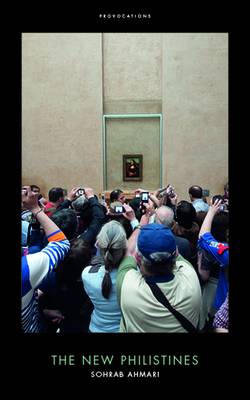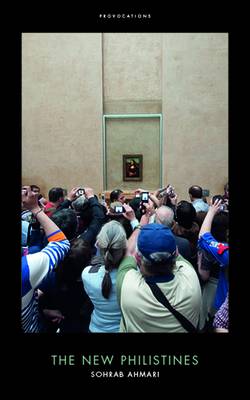
- Retrait gratuit dans votre magasin Club
- 7.000.000 titres dans notre catalogue
- Payer en toute sécurité
- Toujours un magasin près de chez vous
- Retrait gratuit dans votre magasin Club
- 7.000.0000 titres dans notre catalogue
- Payer en toute sécurité
- Toujours un magasin près de chez vous
Description
Contemporary art is obsessed with the politics of identity. Visit any contemporary gallery, museum or theatre, and chances are the art on offer will be principally concerned with race, gender, sexuality, power and privilege.
The quest for truth, freedom and the sacred has been thrust aside to make room for identity politics. Mystery, individuality and beauty are out; radical feminism, racial grievance and queer theory are in. The result is a drearily predictable culture and the narrowing of the space for creative self-expression and honest criticism, the things that draw most people to art in the first place.
Sohrab Ahmari's book is a passionate cri de coeur against this state of affairs. The New Philistines takes readers deep inside a cultural scene where all manner of ugly, inept art is celebrated so long as it toes the ideological line, and where the glories of the Western canon are revised and disfigured to fit the rigid doctrines of identity politics. Pop culture is under assault, too: compliance with identity politics is the measure by which we judge our movies, TV and music.
The degree of politicisation means that art no longer plays its historical function, as a mirror and repository of the human spirit - something that should alarm not just art lovers but anyone who cares about the future of liberal civilisation.
Spécifications
Parties prenantes
- Auteur(s) :
- Editeur:
Contenu
- Nombre de pages :
- 144
- Langue:
- Anglais
- Collection :
Caractéristiques
- EAN:
- 9781785901270
- Date de parution :
- 04-07-17
- Format:
- Livre relié
- Format numérique:
- Genaaid
- Dimensions :
- 117 mm x 180 mm
- Poids :
- 158 g

Les avis
Nous publions uniquement les avis qui respectent les conditions requises. Consultez nos conditions pour les avis.






